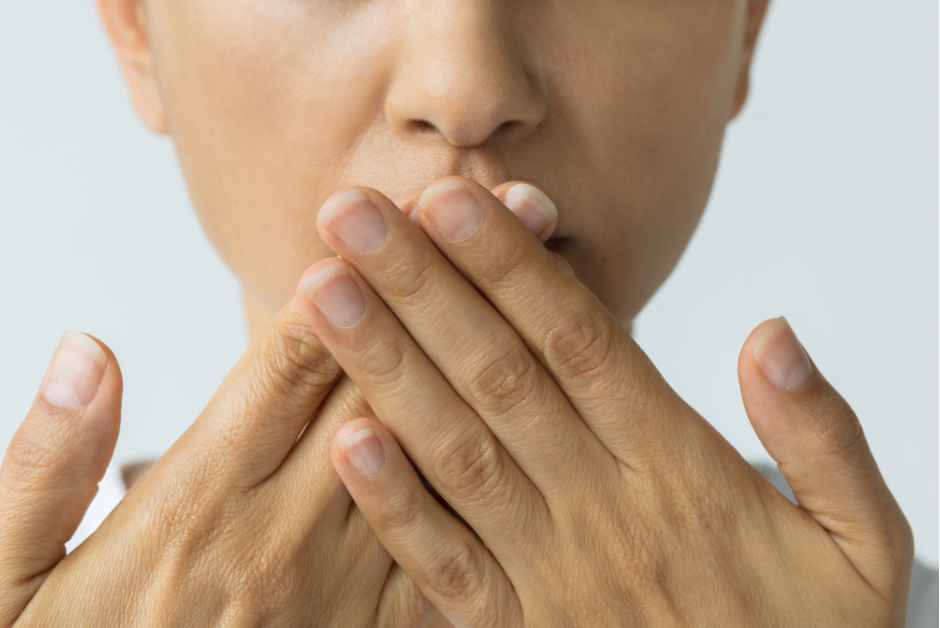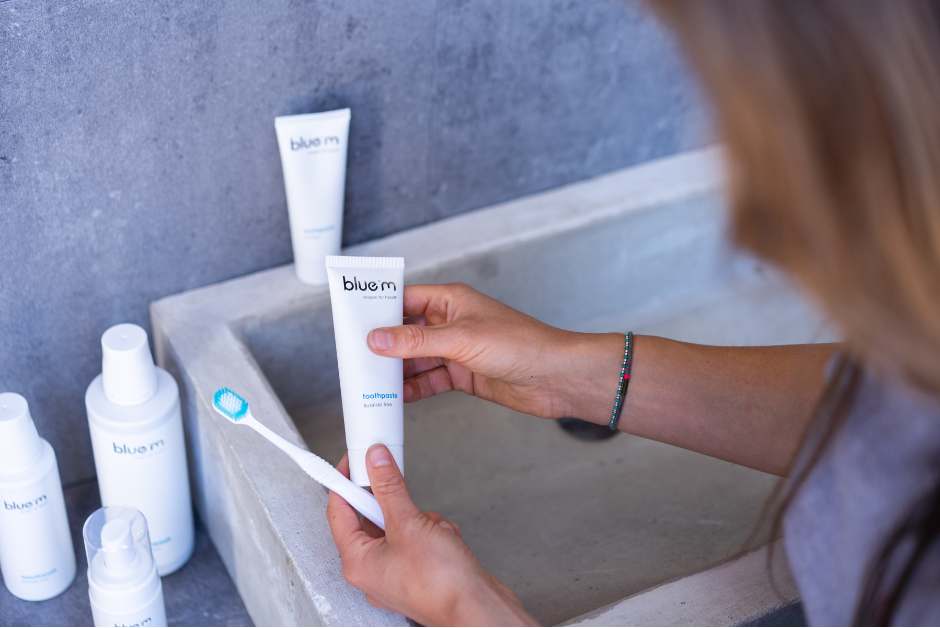
Bad breath, also known as halitosis, is a surprisingly common problem. It’s estimated that one out of every four people suffers from this often embarrassing condition. But what are the causes of bad breath, is there a cure and how can it be treated?
There are a number of causes of bad breath. One of the major causes is poor oral hygiene.
When bacteria build up around your teeth and gum, as well as at the back of your tongue and around implants, they can become trapped. These bacteria then produce sulphur which causes an unpleasant smell.
Bad breath can also be caused by lifestyle factors, including eating, drinking and smoking. Some diseases, like diabetes, can also cause bad breath.
The most common causes of bad breath include:
The first symptom of halitosis is a nasty taste in your mouth. You might notice a yellowish layer of food residue and bacteria on your tongue, while inflamed gums can also contribute to this unpleasant taste.
You may also notice a build-up of plaque around your teeth, suffer from a dry mouth or experience unpleasant morning breath or a burning sensation on your tongue. Developing thick saliva and a constant need to clear your throat can also be symptoms to watch out for.

In the majority of cases, the cure for bad breath is simply maintaining good oral hygiene. Follow our seven ways to improve oral hygiene to help cure halitosis.
Make sure you brush your teeth properly twice a day for at least two minutes with a fluoride toothpaste. Use floss or interdental brushes to clean between your teeth and rinse with mouthwash regularly.
Also, consider using a mouth spray to achieve fresh breath. We recommend using blue®m Mouthspray with active oxygen as a cure for halitosis.
Alternatively, use sugar-free sweets or chewing gum with xylitol. This can temporarily reduce your problem.
Drinking a glass of water right after you get up in the morning can also help. This will get your saliva flowing.
If you smoke, you should consider quitting as this can help prevent halitosis, too.
The treatment for bad breath depends on the cause.
Inflammation of teeth and gums should be detected and treated by your dentist or dental hygienist. They will be able to assess and optimise your oral hygiene and treat any signs of tooth decay.
If the cause of your bad breath is not oral-related, you may need to be referred to a specialist. Your GP can refer you to an otorhinolaryngologist.
Remember, the sooner bad breath is spotted, the sooner treatment can start.
With its oxygen-enriched formula, blue®m can help prevent bad breath. Here are our recommended products.
Certain medications can play a huge part in developing a dry mouth. Many kinds of medicine will reduce the production of saliva and increase dehydration of your oral mucous. Check your medicine with your physician on a regular basis.
Consult your physician as to whether you can take your medication in the morning instead of the evening. A dry mouth at night damages your jaw more than during the day.
Consider introducing products containing xylitol into your routine. Xylitol helps increase your saliva production and is present in almost all blue®m products.
Alongside poor oral hygiene, smoking and inflammation, nutrition plays an important role in the development and prevention of halitosis.
Spicy foods such as pepper, onion and garlic, acidic products and a lack of fluid can contribute to a less than pleasant smell. Food intolerances can also play a role as well (gluten and lactose, for example).
With its revolutionary, oxygen-enriched formula, blue®m allows you to dramatically improve your oral health routine and can help prevent oral health problems such as bad breath, as well as inflamed gums, periodontitis and peri-implantitis.
Yes. Stress can cause your mucous to become dry. And a dry mouth has an effect on your breath and taste in your mouth. Try and reduce your stress levels by eating wholesome foods, excersice on a regular bases and make sure you relax enough during the week.
Yes. Bacteria will sit and “rest” on your tongue. This can cause plaque. Plaque can smell when you leave it there too long. We advise you to scrape your tongue on a daily bases to avoid bad breath.
A sore throat is a sign of infection which can cause bad breath. Make sure you treat your sore throat with the right products. If you think the infection is getting worse, visit your physician.
All orders are handled and dispatched by Swallow Dental Supplies Ltd.